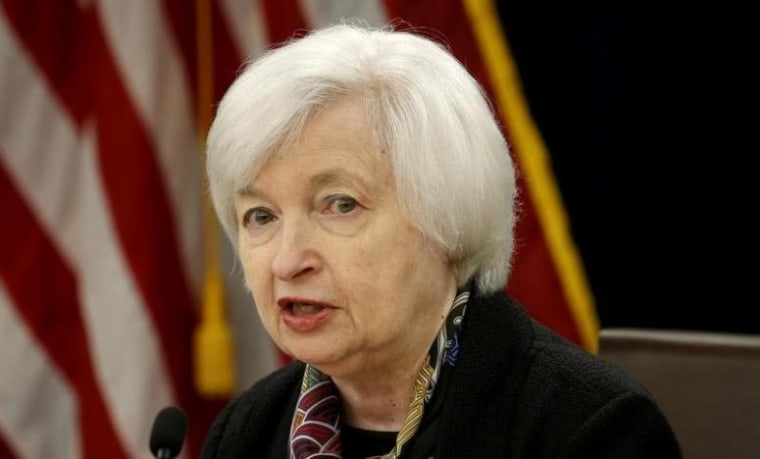The biggest source of speculation at a Fed meeting — whether or not the board will decide to raise interest rates, which it has done only once since 2006 — is all but a foregone conclusion this time.
The bigger question is what the Federal Reserve will do in 2017, and how that will impact the markets, policymakers and ordinary investors under a Trump administration.
“There’s less uncertainty than usual about this decision,” said Joseph Gagnon, senior fellow at the Peterson Institute for International Economics.
Every one of the 120 economists polled by Reuters predicted an increase to the benchmark Federal funds rate will be announced Wednesday. With the surprising upset in the presidential election, the bigger question is what the Fed will do in 2017, and how that will impact the markets, policymakers and ordinary investors.
Trumponomics
Next year, the Federal Reserve board members will be watching carefully to see what kind of fiscal policies a Trump administration and GOP-led Congress put into place, and the economic impact of those.
“While there’s a lot of conversation in financial markets [about] the implications for Trump’s policies and what they might mean for growth, we would not expect them to show up in the FOMC’s projections,” said Jeff Rosenberg, chief fixed income strategist at BlackRock.
Related: Federal Reserve Opts Not to Raise Interest Rates at September Meeting
Rather than making plans based on policies and outcomes that are still unknown, the central bank is taking more of a wait-and-see approach, he said. “No one is expecting the Fed to get preemptive.”
On the campaign trail and since the presidential election, Donald Trump called for infrastructure investment and lower taxes for individuals and businesses. If the incoming administration does wind up implementing policies such as significant tax cuts, some economists said the Fed’s response could be acceleration of interest rate increases.
“There’s an open question about how expansionary the fiscal policy will be. Assuming they do adopt an expansionary fiscal policy… they’d raise rates more quickly,” said Martin Baily, a senior fellow at the Brookings Institution. “I think the Fed is going to be on the watch to see if they see signs of inflation,” he said.
Future Shock
While the impact on American wallets from the expected December rate increase will be small — it is only a quarter of a percentage point, after all — economists say that further rate increases will affect certain types of borrowers more than others.
“We’re really talking about home equity lines of credit and credit card rates, and I’d say the immediate impact on most consumers is somewhat limited,” said Mark Hamrick, senior economic analyst at Bankrate.com.
“What most of us are watching most intently is what the FOMC signals with the possible future trajectory,” Hamrick said. “It’s entirely possible that the Fed begins to project a couple of interest rate hikes in 2017, maybe even three.”
“I think it’s possible that we could get an expansionary fiscal policy, and we could get a better economy that we’ve had,” Baily said. With Trump and the GOP majorities in Congress on the same page (at least ostensibly), “He’ll get credit for doing things that Obama wanted to do, but wasn’t allowed to,” he said.
In the longer term, though, these efforts to goose the economy could cost more than anticipated. “Once you cut taxes, it’s very hard to raise them again,” Baily pointed out. “The long run budget problem is pretty severe,” he added, with demographic shifts putting more demands on entitlement programs like Social Security and Medicare.
Slow Growth
And if the Fed raises interest rates more rapidly than economists expect in order to keep inflation from spiraling out of control, many people could find themselves on shaky economic footing.
“We’re not used to thinking of monetary policy as a tool to benefit one group of people over another,” Gagnon said. “Fiscal policy is better used that way, but the fact is monetary policy does have different effects on different people.”
To some extent, low interest rates are good for debtors and bad for savers, but Gagnon said the big picture is more complicated. A spike in the cost of borrowing could put younger and poorer Americans — many of whom are still struggling to recover from the effects of the recession nearly a decade later — in the economic crosshairs once again, he said.
“If you cause inflation, that hurts everybody, and it might hurt poor people more because they have fewer ways to protect themselves,” he said.
